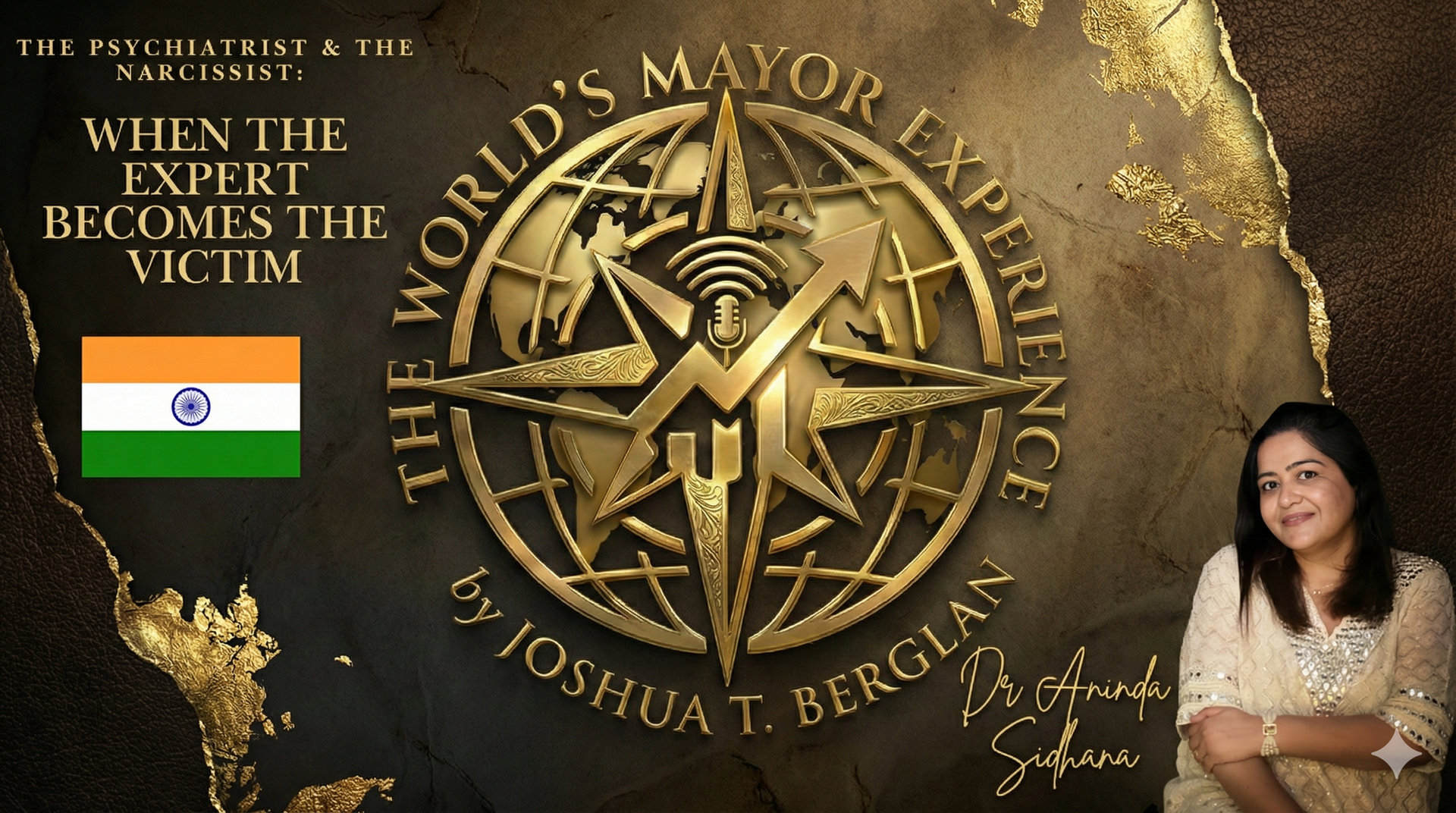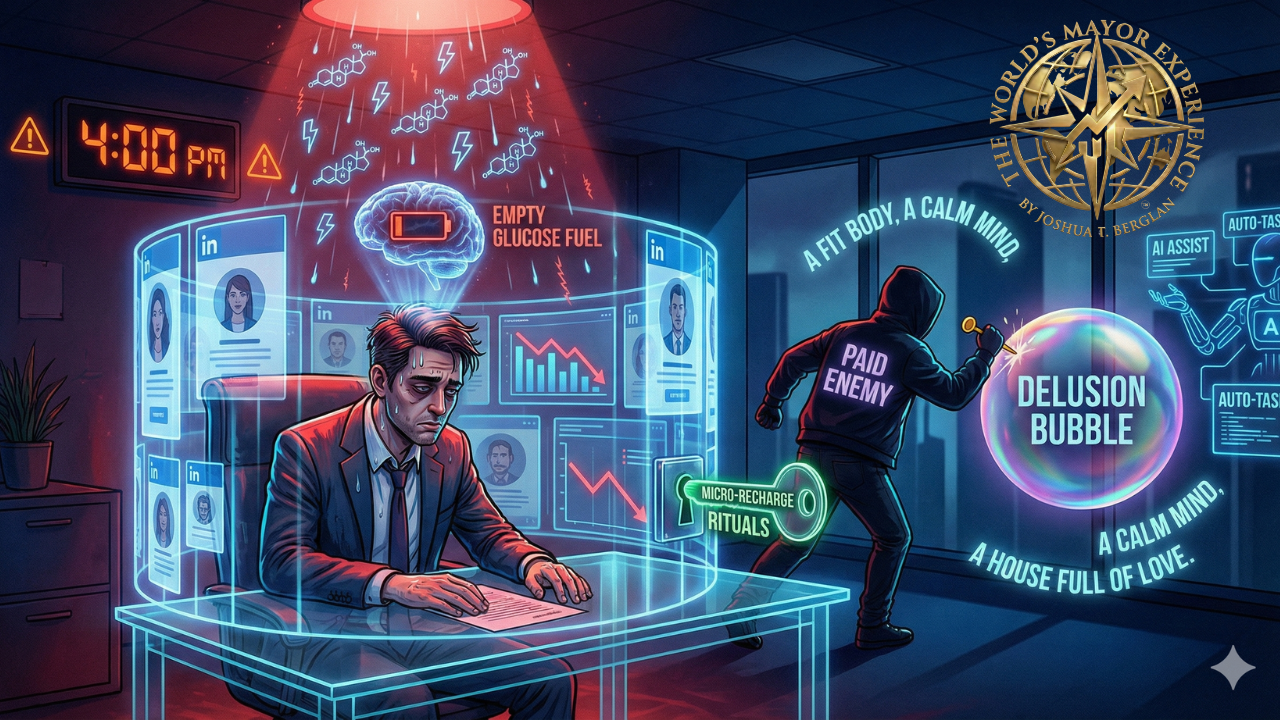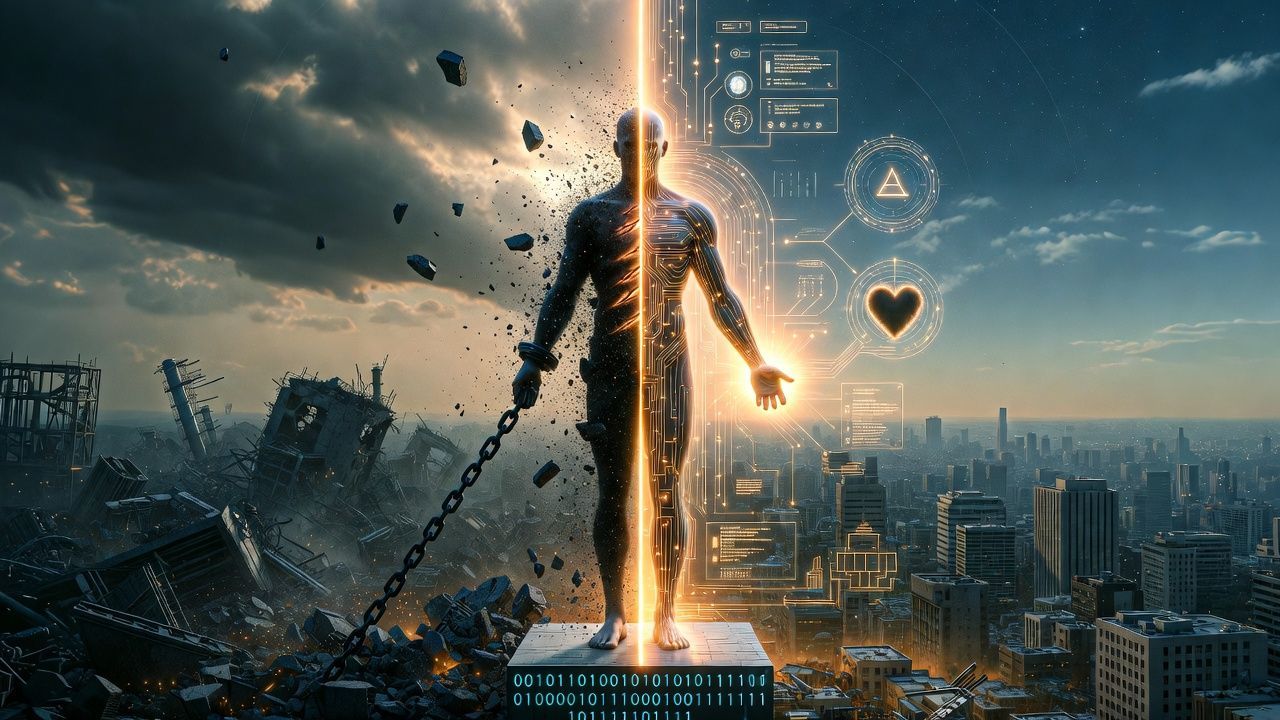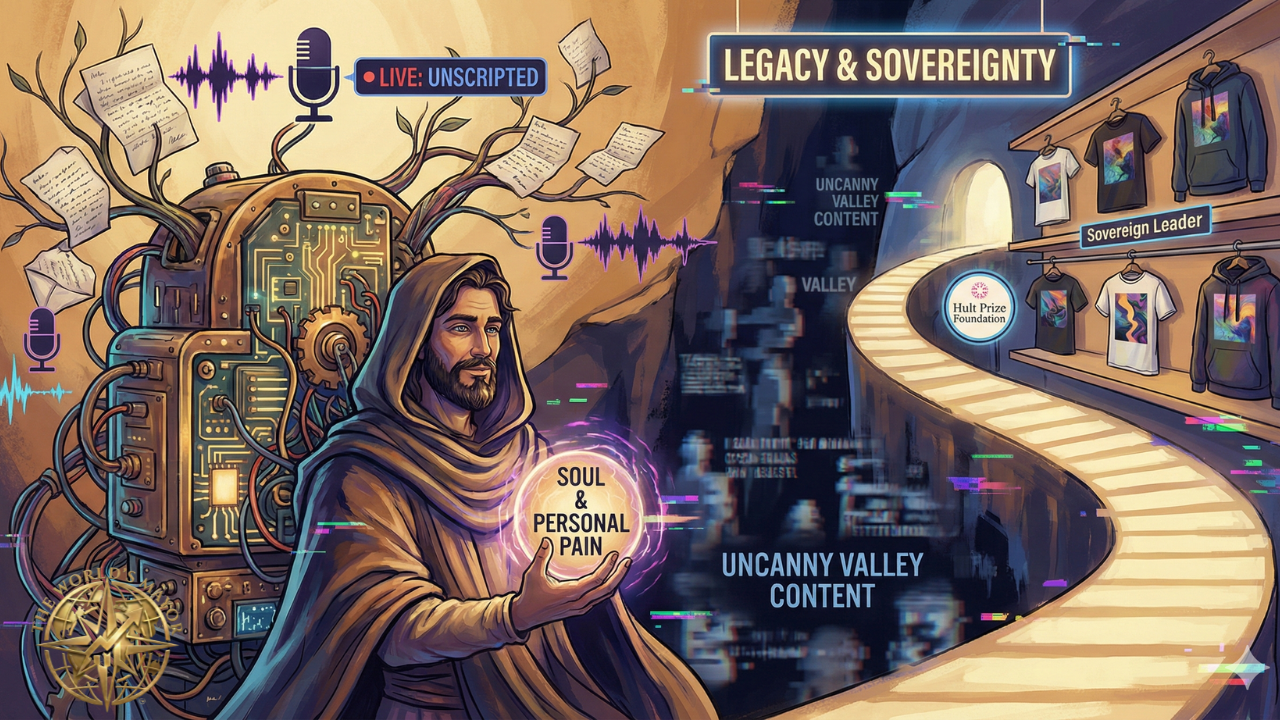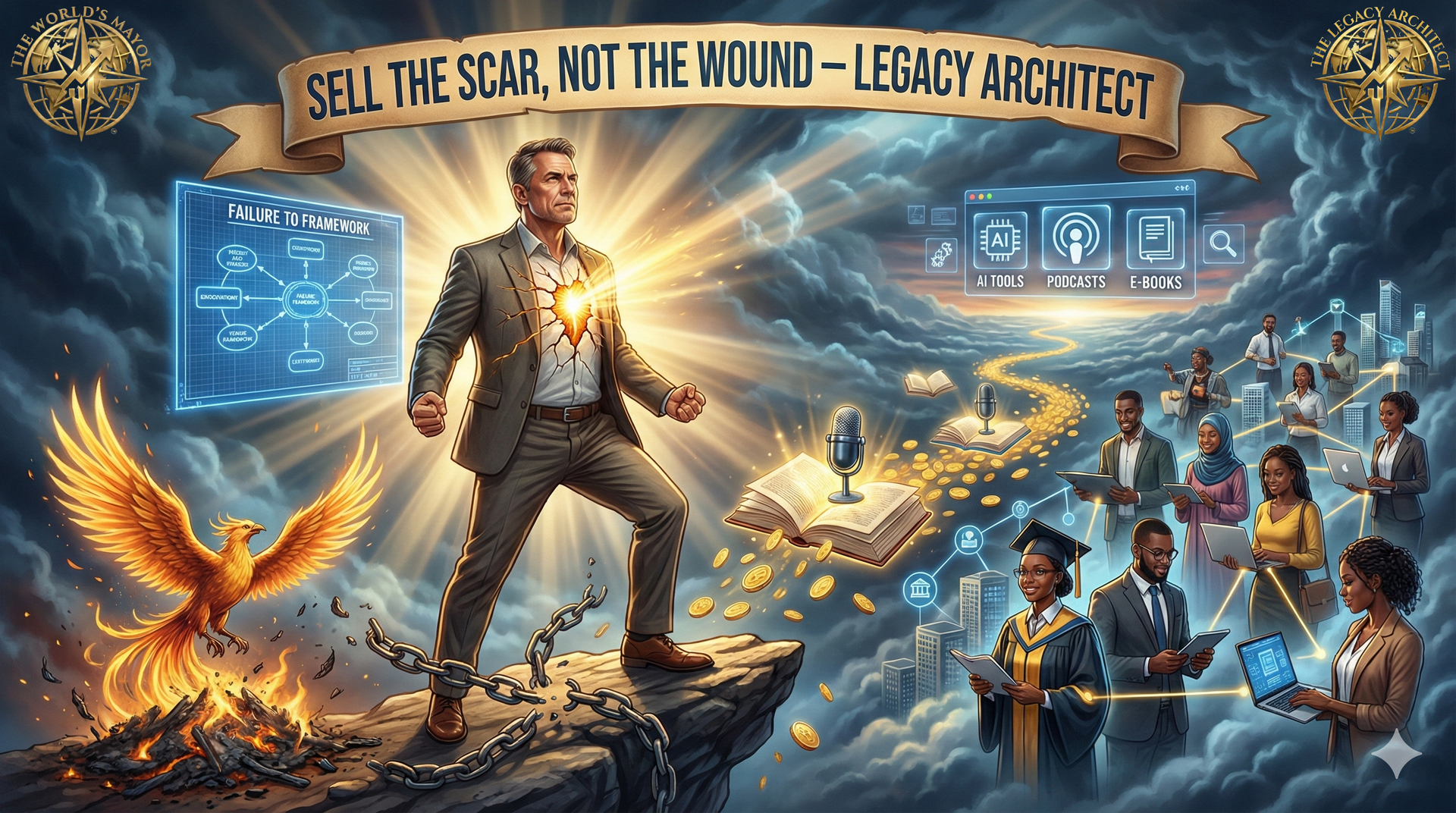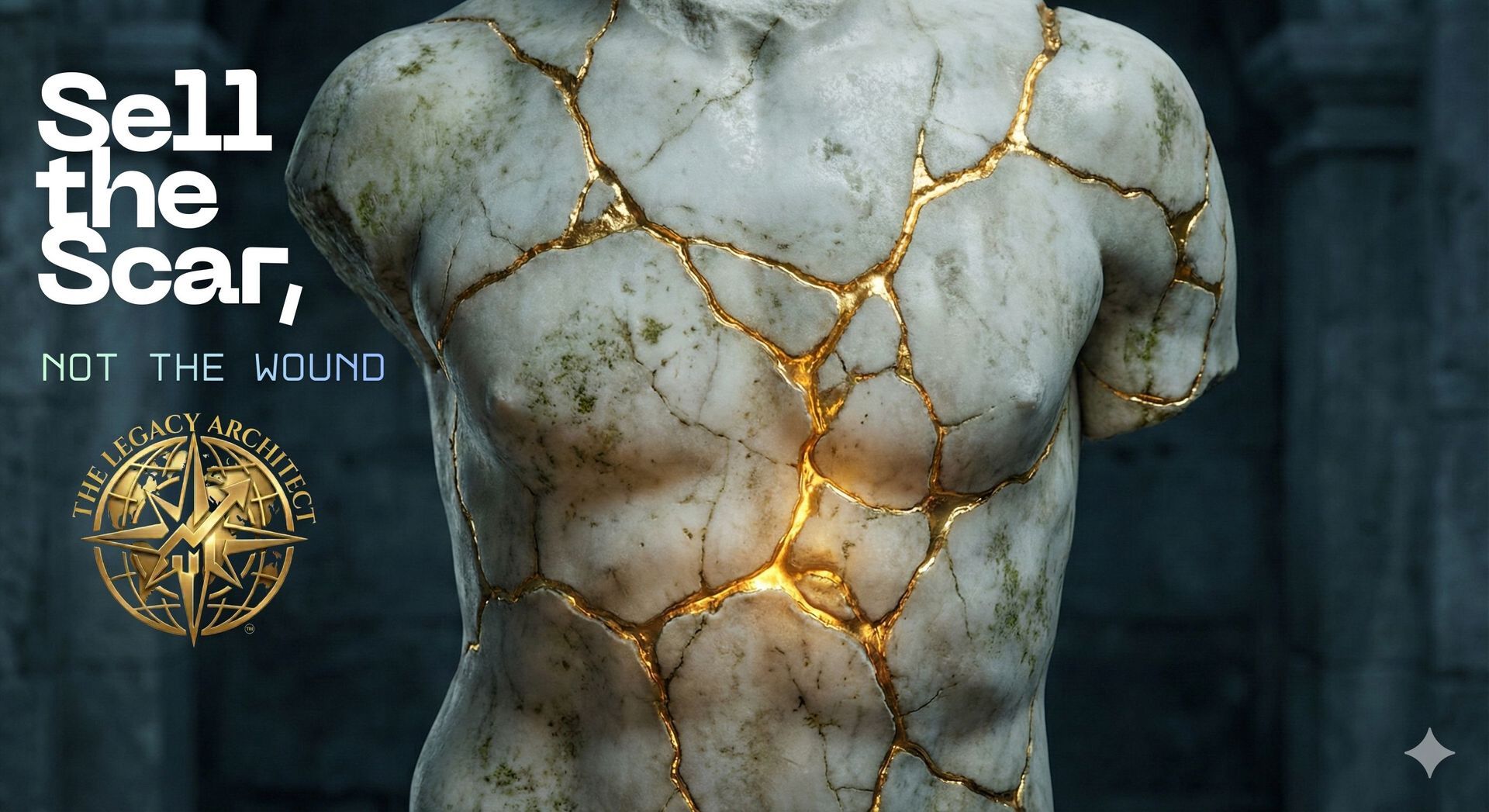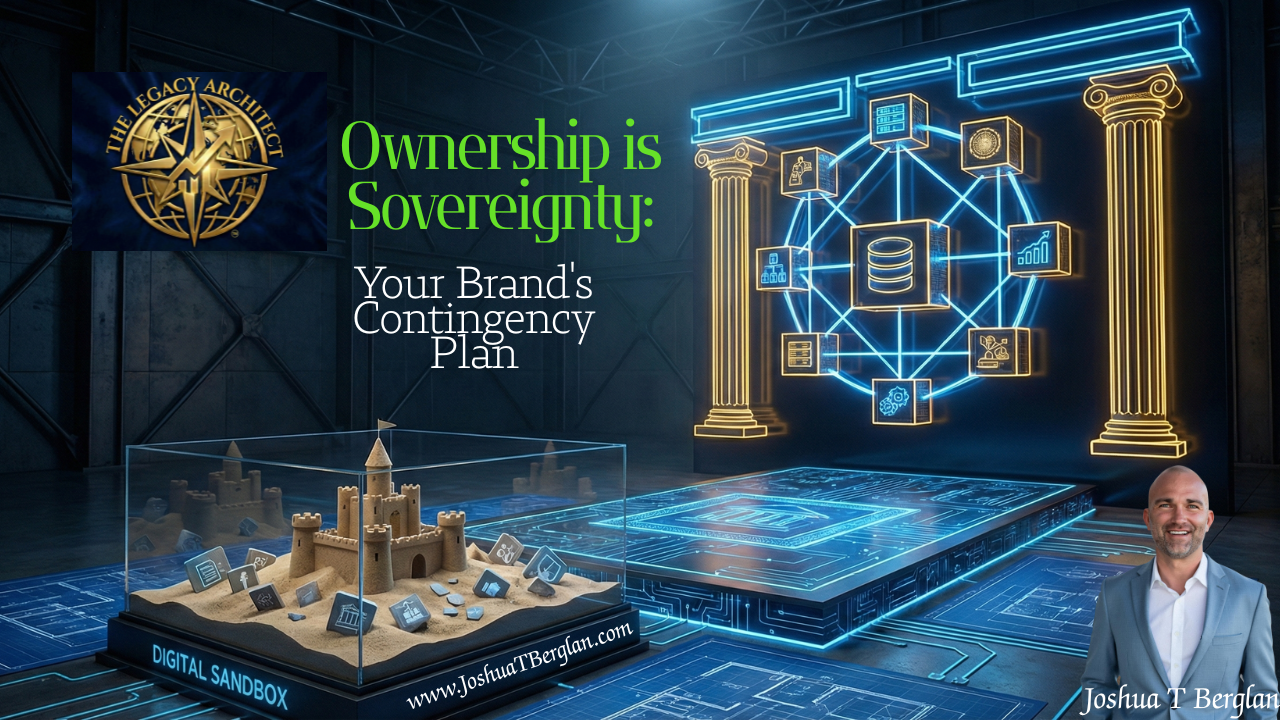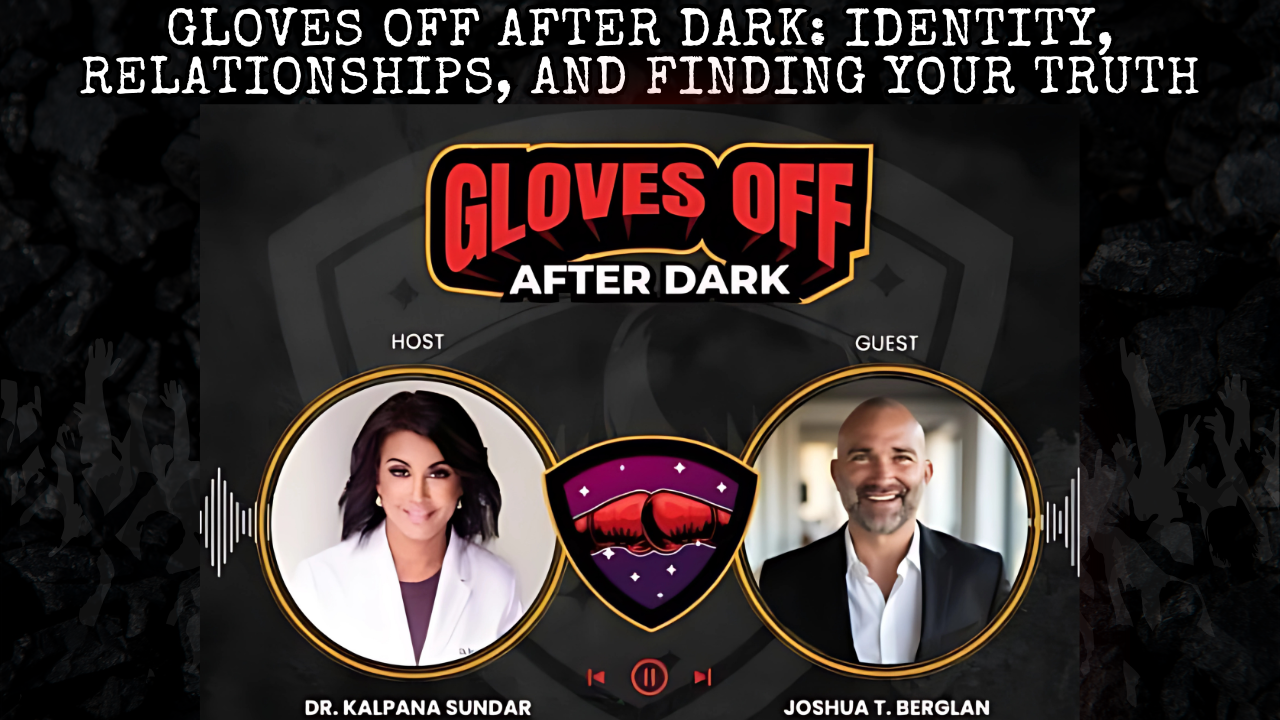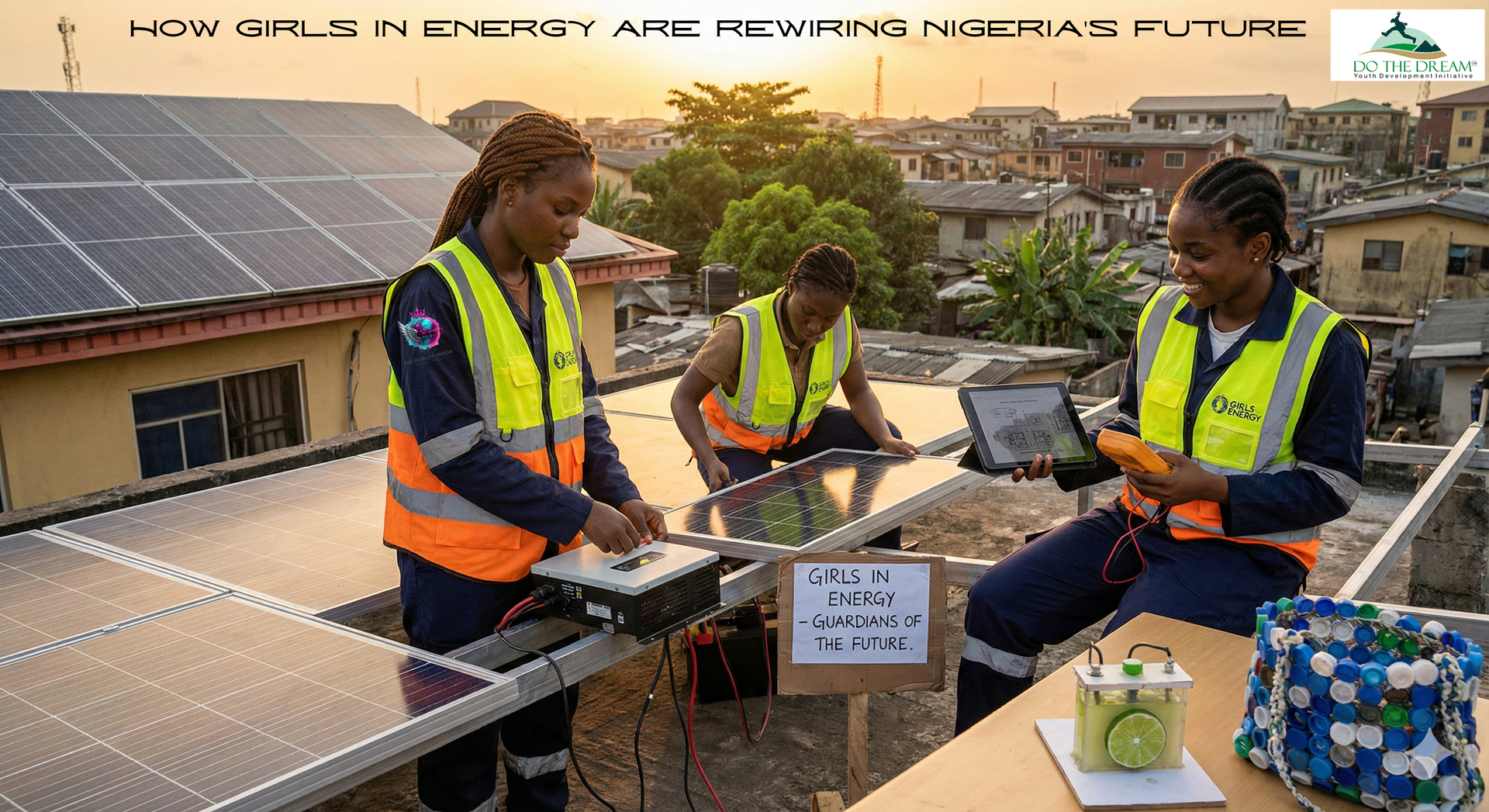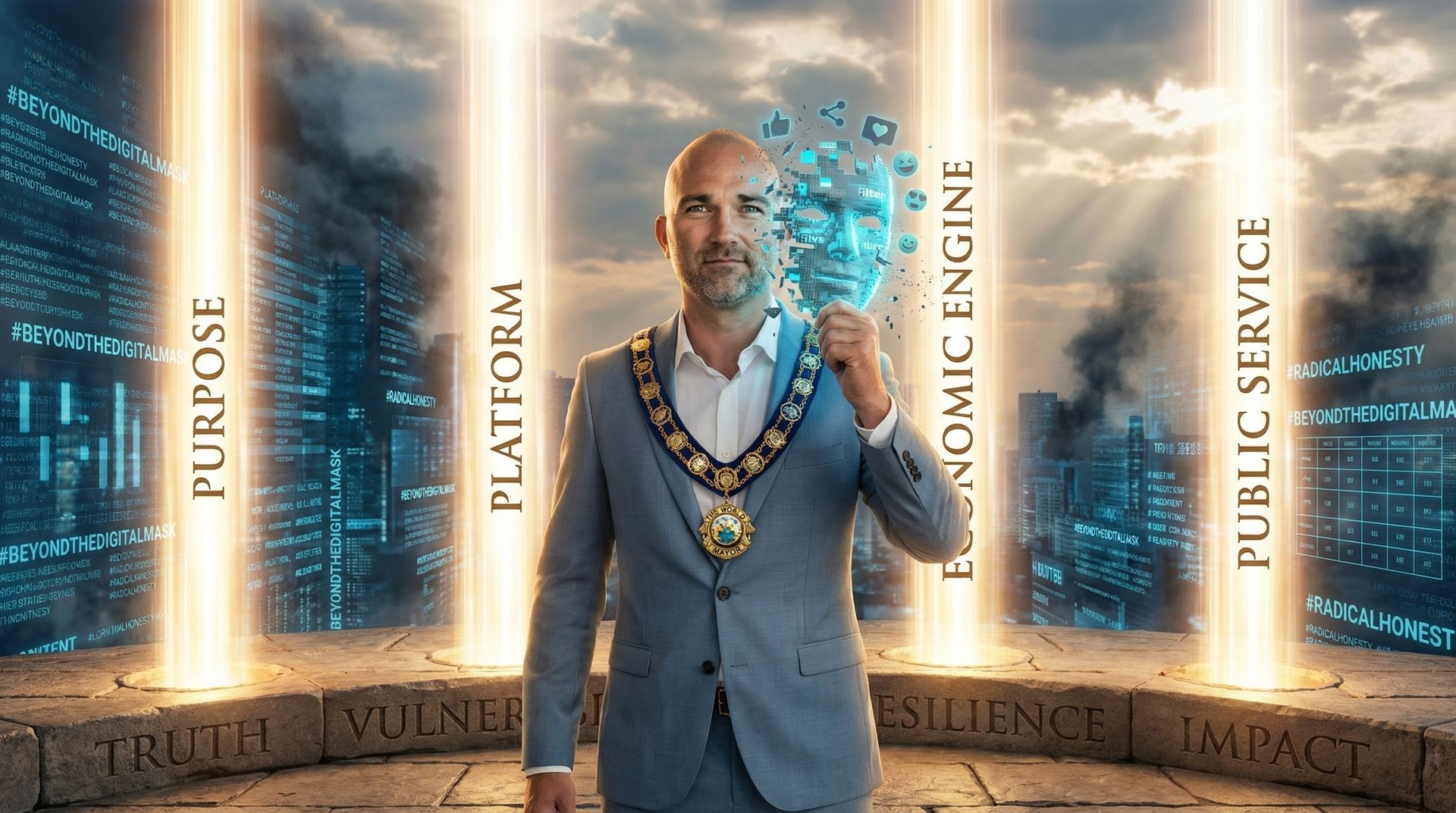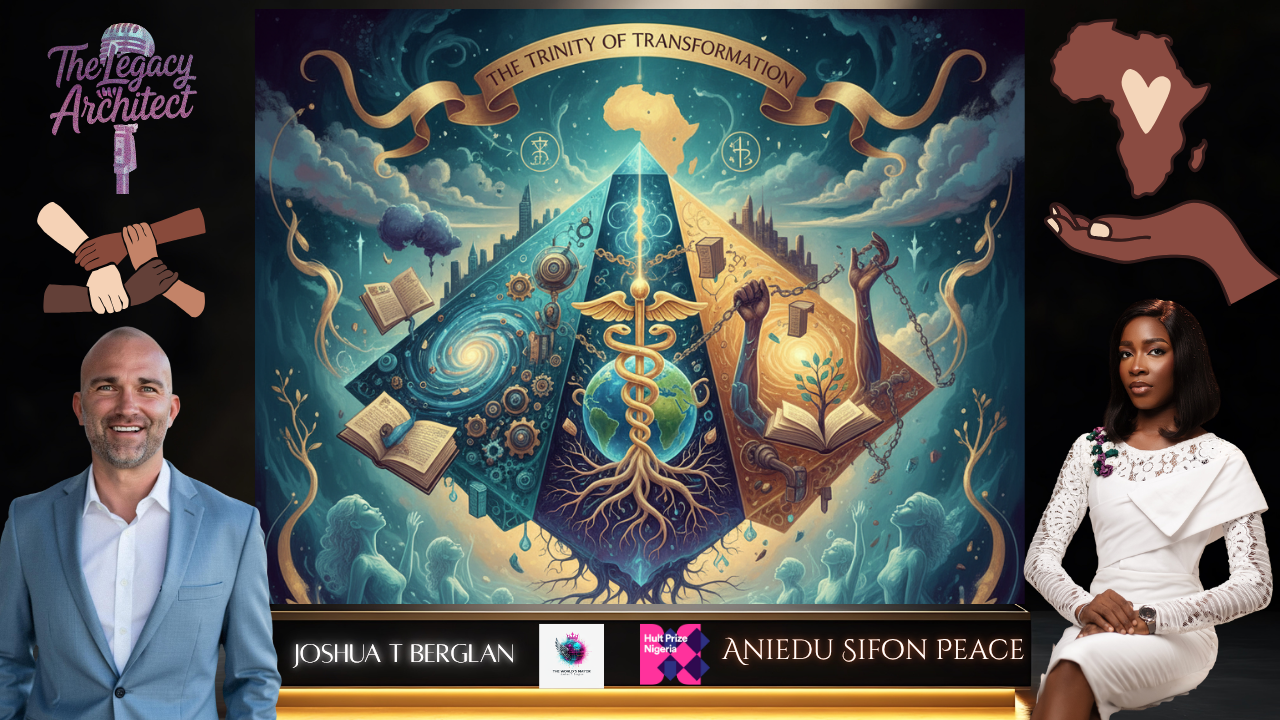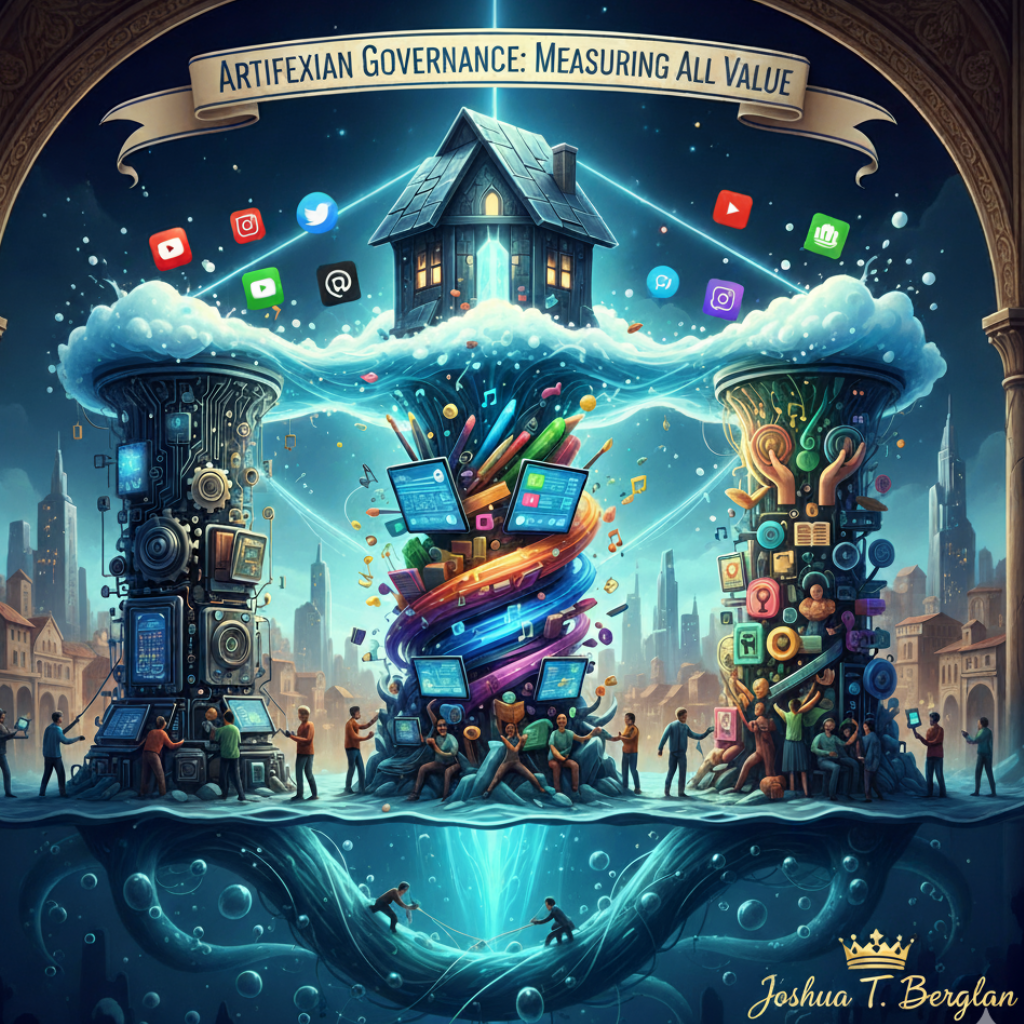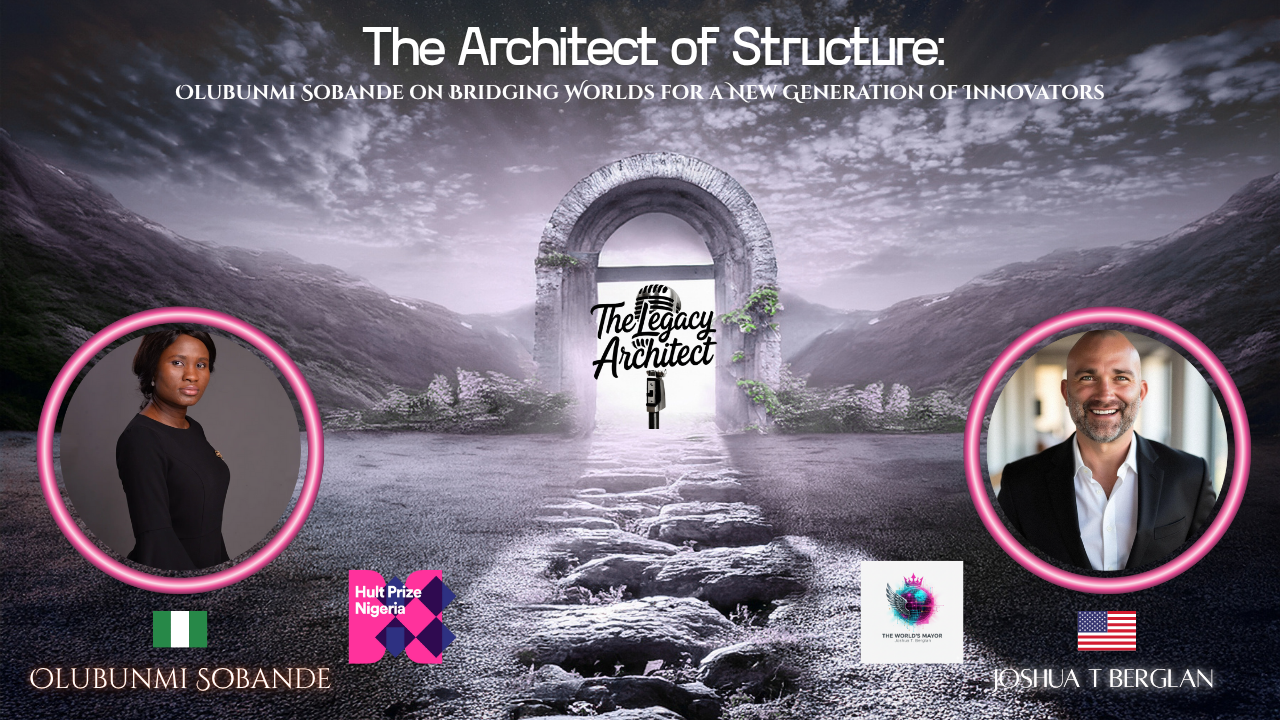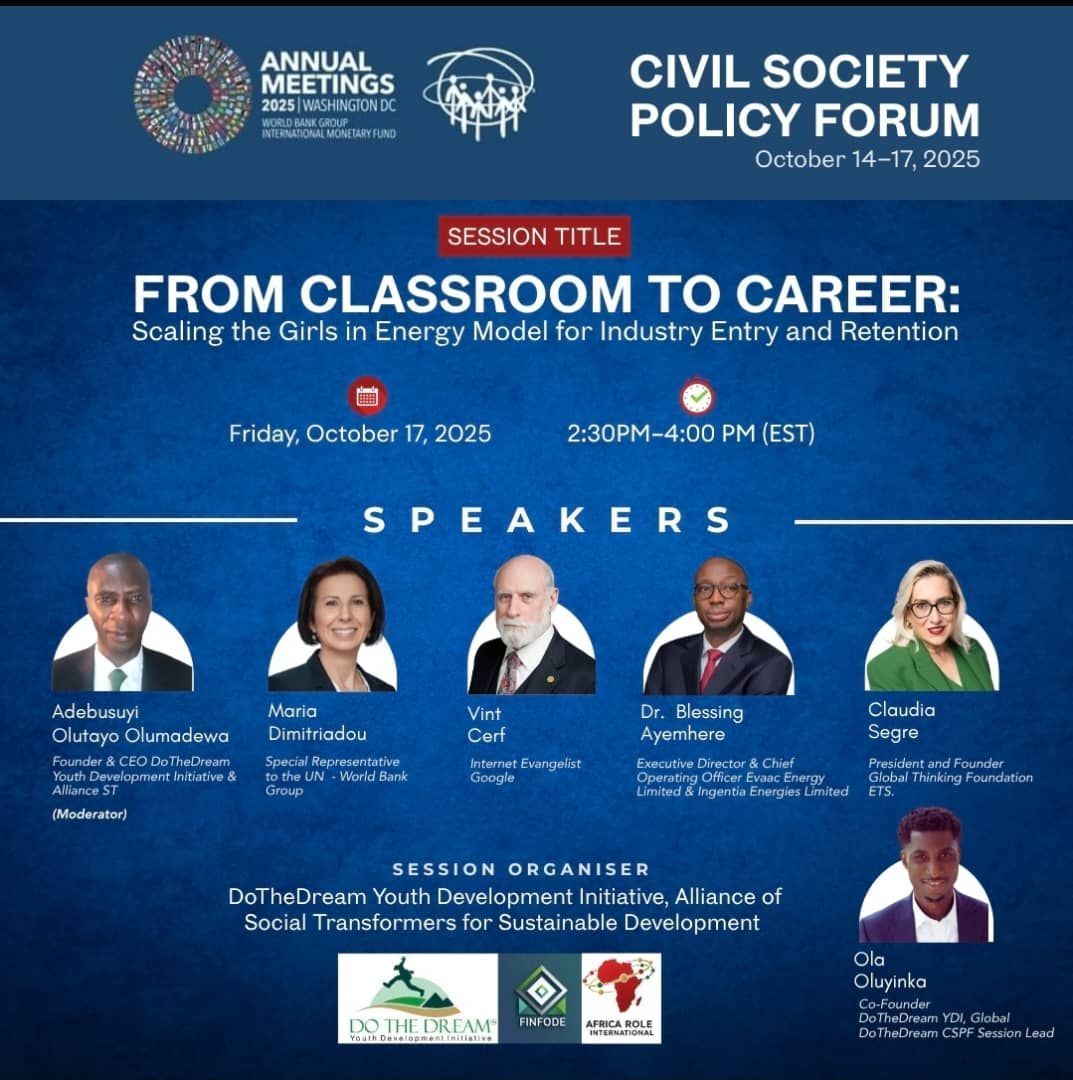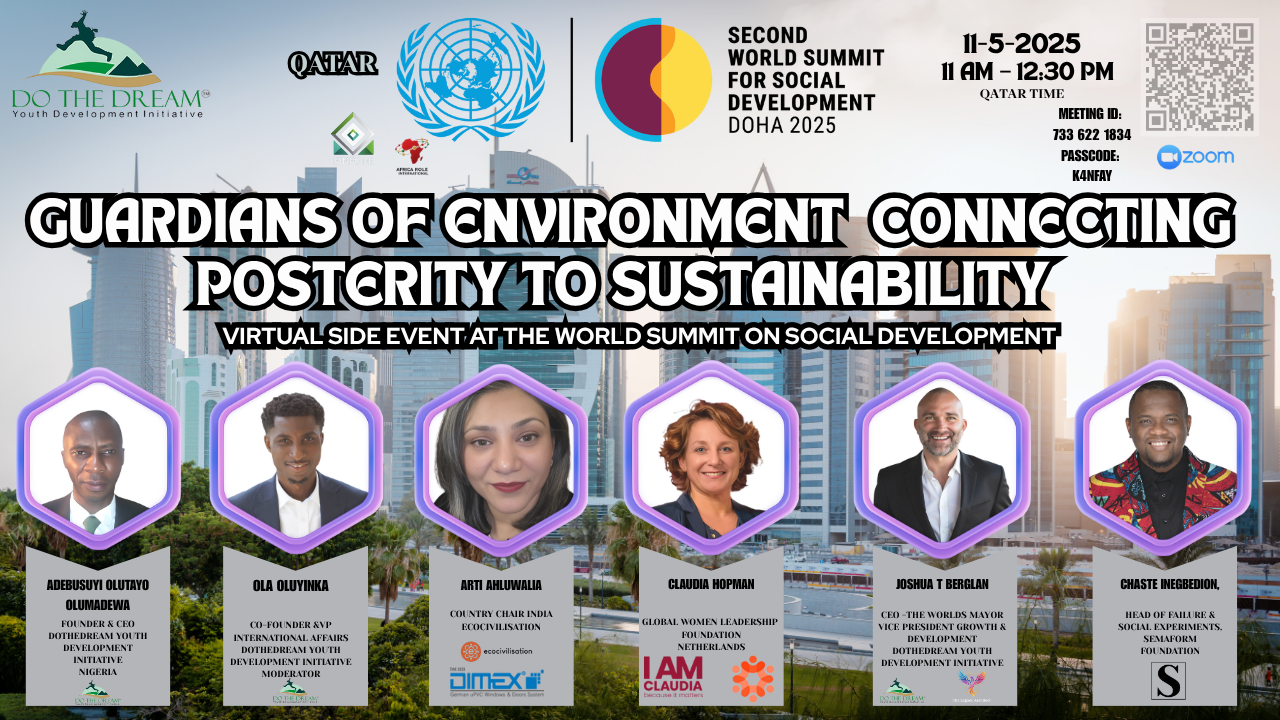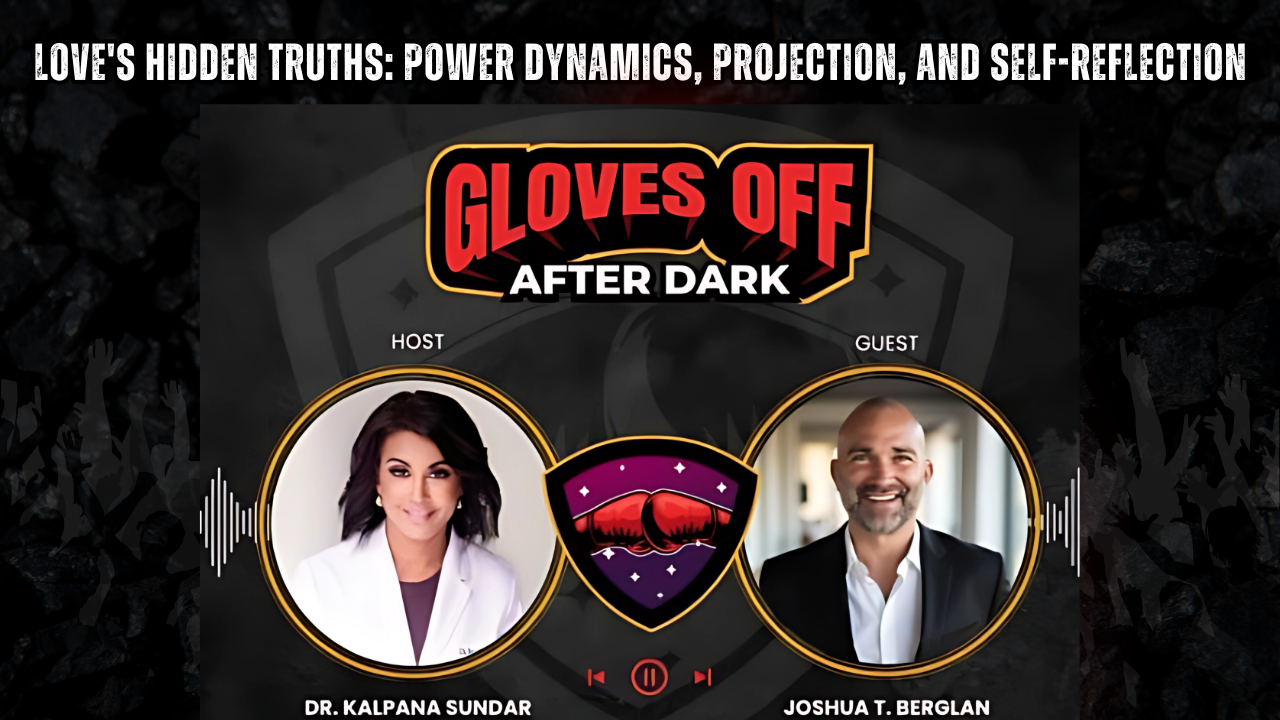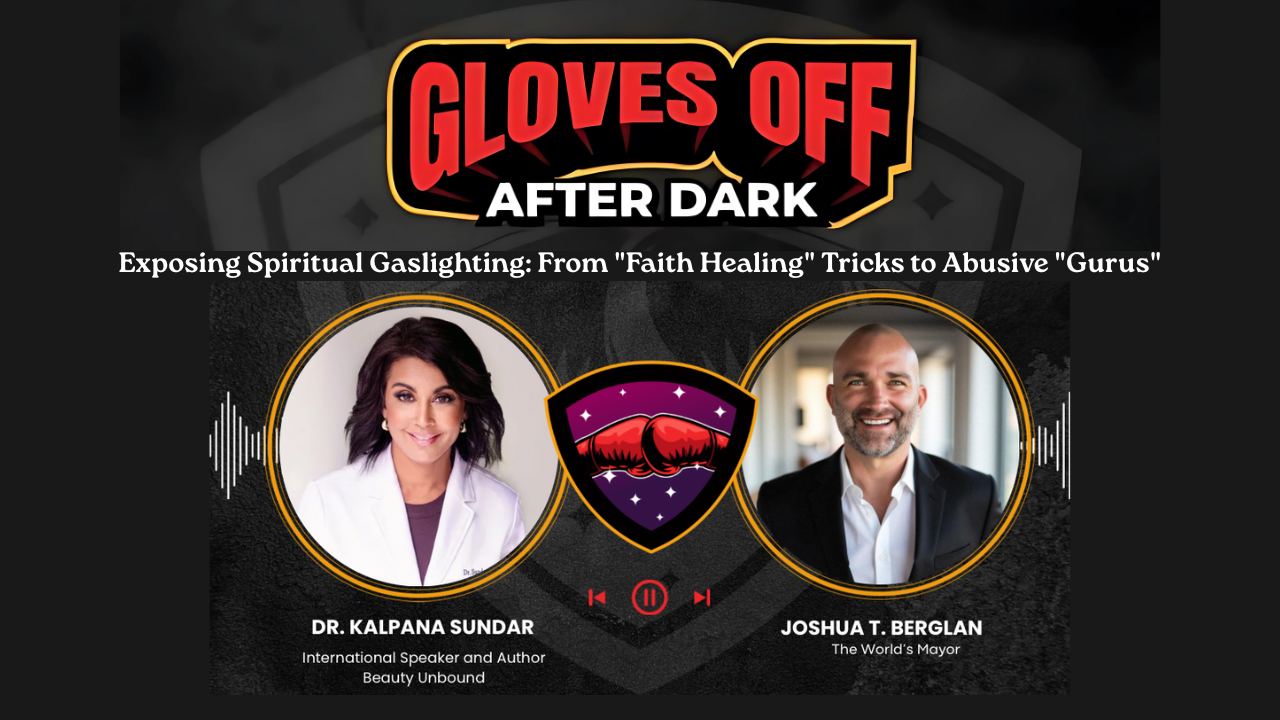In a world brimming with challenges, a new generation of leaders is rising, driven not by profit, but by purpose. Olamide Otasanya is one such leader. A dynamic social impact advocate, chartered accountant, and a National Coordinator of the Hult Prize Nigeria, Olamide is at the forefront of a movement empowering Africa's youth to build a sustainable future. Joshua T. Berglan, The World's Mayor, had the profound honor of sitting down with him for an episode of The Legacy Architect , and their conversation was a powerful reminder that the greatest legacy we can build is one that uplifts others.
From the world of finance to the front lines of social change, Olamide’s journey is a testament to the power of aligning one's profession with their passion. He shared insights into the untapped potential of Nigeria's young innovators, the misconceptions that hold them back, and the incredible, world-changing ideas they are bringing to life against all odds.
The Interview: From Balance Sheets to Building Futures
Your career began in finance and accounting, a world of numbers and structure. Now you're a leader in social impact. Can you take us back to the moment you realized your purpose was bigger than the balance sheet?
"I grew up in a family that did not have; we needed to struggle for us to make a life... It has always been my own very passion to make a social impact in every environment. When I came across Hult Prize, I realized that a lot of people have brilliant ideas... but they do not have financial sponsorships. When we now start seeing results, that some people are establishing their businesses, it is like a great joy. You feel accomplished when you know that the major reason why you joined this organization is to make sure you are making a social impact and you are seeing the result of this SDG being solved."
You’ve been described as a dynamic leader. If you had to choose one word that you feel truly captures your personal "why," what would it be?
"My empathetic spirit. Anytime I'm in a meeting... I try to put myself in their shoe. I try to know the number of stress, the effort these people have put in... I felt this startup, I felt it could have been me. These people have ideas and we are saddled with the responsibility to match them with experts, to match them with investors... I don’t just listen to the challenges. I put myself in the shoe so that I can relate how these challenges are being held. That is the best way for me to now come up with different solutions."
You were the first Nigerian to win the Sub-Saharan Program of the Year and ranked in the top seven globally for the Hult Prize Foundation. Can you share the story behind that achievement?
"What we mostly need in this our country is a platform. And then I was like, now I have the platform. When I speak, I speak as Hult Prize... I tell them about our beautiful startups. I tell them about their idea, their sharpening, lightning ideas... We were able to convince startups. We have a large number of startups that applied... I ensure that everything is being recognized and being seen because if they are not seen, their sense of responsibility might reduce. I ensure this startup sees this Hult Prize university as a family where they can tell us about their problem."
What is the most common misconception people have about the young innovators you work with? And what is the reality?
"The most misconception people have is that they want to make money quick. They are not ready to devote a lot of time... and I'm telling you, it's a beautiful lie... For every idea they're about to give, there are always factors around it that influence this decision... Sometimes advice is not enough to move an idea. We need financial support. We need physical support... Most beautiful ideas are always debunked because they do not have the financial commitment to carry it out. And this is what people are still talking about."
What is the most innovative or surprising solution to a global problem you've seen come from a young Nigerian innovator?
"I saw a startup that is using waste nylon to make bricks... that is used to construct houses. I've seen people that do recycling of waste product and turn it into a usable activity. And then I also have this apex health—they use solar to do incubators... They understand that we here in Nigeria used to have a lot of electricity problems... We've had issues of loss of babies because they do not have enough electricity for the incubator they are doing. I saw these innovative student ideas utilize solar power... to build an incubator."
If you had the attention of every single world leader for five minutes, what would you tell them about the untapped potential of Africa's youth?
"Africa owns 60% of the world's uncultivated arable land, the youngest population on Earth, and the fastest-growing digital adoption rate... I believe here in Africa, there are a lot of visions. There are a lot of plans. There are a lot of brilliant things people are looking at in different industries. But what is hiding it? There is no support. There is no life support to bring it up to life... Ideas are dying every day... Most people, they don't want to take any risk in any ideas that are coming up. They prefer you to have taken that idea from your own ideation test to the final stage before you could reach out, and these people do not have the. Automatically, the idea dies."
The name of this podcast is The Legacy Architect. When you think of the word legacy, what does it mean to you personally?
"To me, being a legacy architect means building something that outlives me, something that empowers others to dream bigger, act bolder, and believe that change is possible. It’s not about titles or recognition; it’s about creating systems and opportunities that continue to inspire people after I’m gone... My legacy is to architect platforms in education, innovation, and social entrepreneurship that help people to build theirs. I want to be remembered as someone who doesn't just chase success, but someone who creates pathways for others to succeed too."
If you could have a conversation with your younger self just starting out at university, what's the one piece of advice you'd give yourself about the journey ahead?
"Never give up. I could tell you that everything I have laid my hands on, it's might take a longer period. Delay is never a denier, but I always get a positive result. I always ensure that the result comes true... There was a time when I was very young, I never knew I would go to university. It was looking like university is not possible... but the one thing I hold on to is never give up."
For our global audience, can you paint a picture of the Hult Prize's significance in Nigeria?
"At Hult Prize Nigeria, we want to see these brilliant ideas they are coming up with getting implementation... We want to go beyond just organizing a competition. We want to see it as a family having a very strategic, long-term plan whereby in the next five years you would remember that yes, you started from Hult Prize Nigeria... They change the narrative for you. That is one thing Hult Prize Nigeria is passionate about. We look beyond the $1 million global final challenge."
You're passionate about leveraging innovation, finance, and entrepreneurship. If you had to pick one as the most critical for Africa's future right now, which would it be?
"Innovation. Innovation it is... Most of the new things we are currently working with did not exist some years ago. It's because somebody innovated... The utilization of a microphone for better communication... these are kinds of innovations, and I would always pick them because that is how to change the world. That is how to make life easy for people."
Outside of your incredible work, what is something you're deeply passionate about that might surprise people?
"If I have the chance to venture into the education sector, I would jump on it. Why? Because I saw a lot of challenges that I faced... and I have seen opportunities out there that are available, but the set of people that actually need this opportunity do not have the opportunity to meet it... These are the people that need this scholarship. These are the people that need this help. But they are not being heard. They are not seen because you set them a standard examination that they do not have the privilege to [prepare for]."






